In an effort to mitigate the growing effects of climate change while also helping smallholder coffee farmers increase crop yields, the U.S.-based coffee-farmer-focused nonprofit Radio Lifeline has announced the expansion of its Black Earth Project into Tanzania.
The Black Earth Project involves the low-tech, cost-effective creation of biochar, which can then be used as a soil amendment on coffee farms. Launched as a two-year research project in Rwanda in 2012, the project involves repurposing used oil drums as kilns that can convert dried biomass — anything from dried corn stalks to coffee pulp, grasses, cow manure, etc — into biochar through process called pyrolysis. The high-temperature, low- or zero-oxygen process prevents the release of carbon dioxide and other greenhouse gases produced in other traditional charcoal-making methods.
Field research from the Rwanda study suggested astounding positive potential effects regarding biochar’s use as a soil amendment. When we last checked in with Radio Lifeline Founder Peter Kettler in 2015, he said crop yields from the one-time application of biochar — which can last for hundreds of years in the soil — increased by an average of more than one third in the first year.
“When used as a soil amendment, biochar can increase crop yields, reduce nutrient leaching, help retain moisture, reduce soil acidity, improve soil fertility and surrounding water quality while significantly reducing the need for additional irrigation and fertilizer inputs,” Kettler said in a Radio Lifeline announcement of the Tanzania project. “Biochar has increasingly been cited as an effective approach to carbon sequestration as it can remain stable in the soil for more than a hundred years. Our field trials in Rwanda produced an average 35 percent increase in yield, accompanied by a 50 percent decrease in input costs within the first year.”
The partners in the Tanzania project include Tembo Coffee Company, a leading exporter from the Southern Highlands region, and MIICO, a network of community-based agriculture development organizations based in Mbeya. Major funding for the project is being provided by the German Investment Corporation (DEG).
Last December, Radio Lifeline staff traveled to Mbeya to train 20 field officers from the partner organizations in the proper production and application of biochar in smallholder farm settings, and RL said that biochar was applied both to coffee seedlings and mature trees to determine its effectiveness when combined with various traditional fertilizer inputs.
Local welders have created six biochar kilns with the Radio Lifeline design, at an average cost of $40 USD, while the project will eventually involve the fabrication of 50 kilns for more widespread use.
“The effects of climate change have created a whole new set of challenges for coffee farmers in southern Tanzania,” Line Cosmidis, Specialty Coffee Manager for Tembo Coffee Co., said. “A number of regions have experienced five to six months of sustained drought, creating severe stress on both coffee and food crops. Biochar has demonstrated an ability to act as a kind of sponge in the clay and sandy soils found here, making both water and nutrients available to plants over an extended period while improving overall soil fertility.”
Nick Brown
Nick Brown is the editor of Daily Coffee News by Roast Magazine.
Comment
2 Comments
Comments are closed.



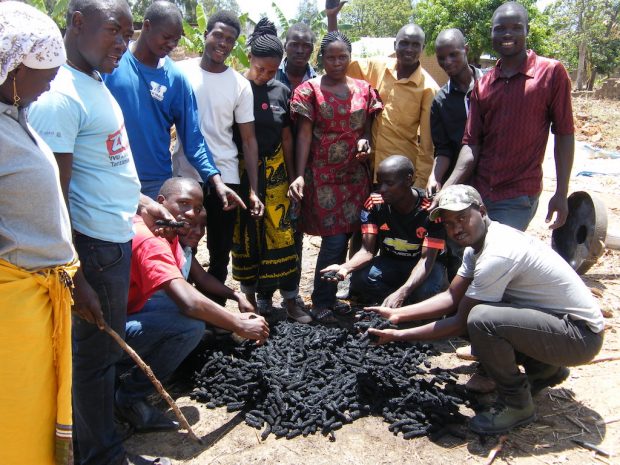
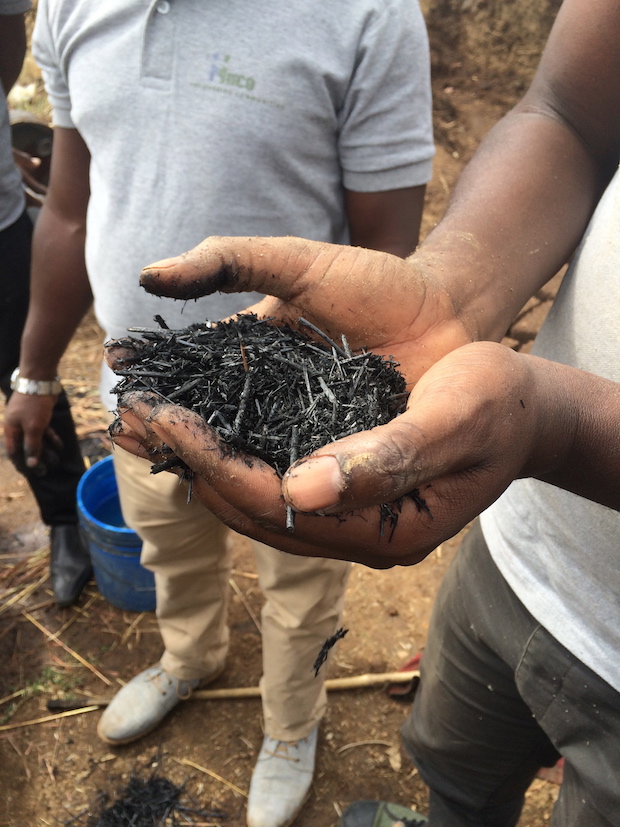
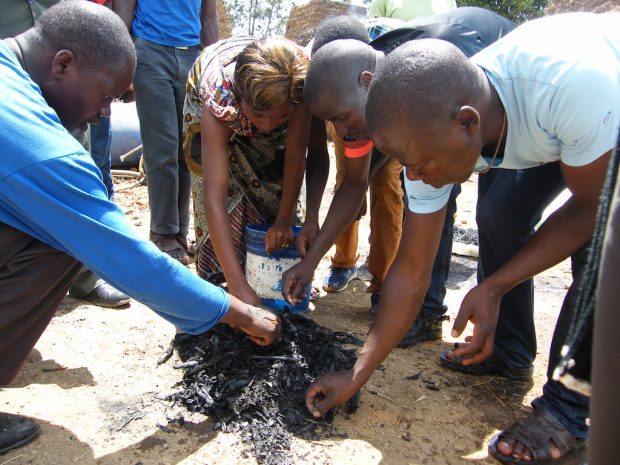
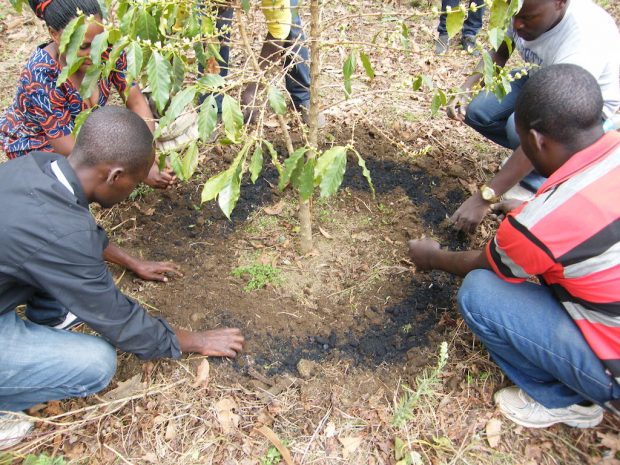
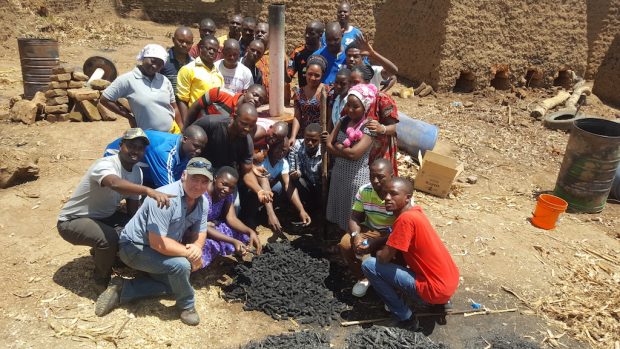



There are 3 methods to maintaining soil fertility.
1.The use of good agronomic practices.
2.Addition of materials containing organic matter to the soil.
3.Additional of materials containing plant nutrients in a concentrated form to the soil.
Biochar is very potential in Agriculture if well studied, I have first experienced about it in China, they have special projects in the Universities about biochar characterization for soil amendments and wastewater treatment. I have also conducted a research on it, using wood wastes as biomass. It’s something very interested, cost effective and environmentally. I will be very pleased to see its use, expanding in Tanzania. Personally I would like join you and work together.